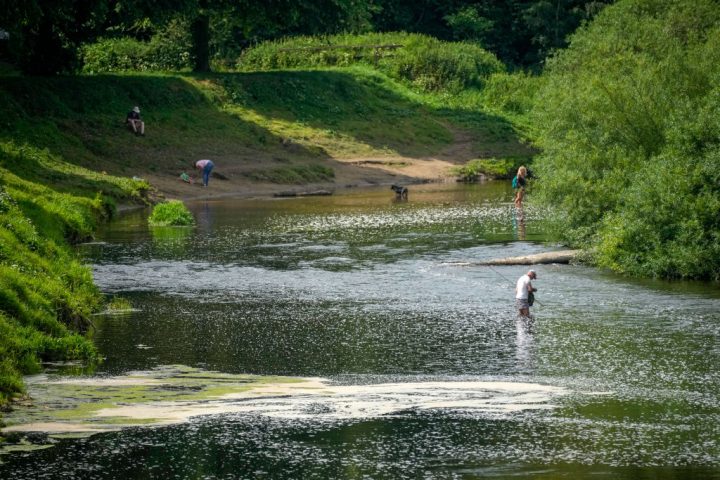Keir Starmer has come up with a good policy for once. He is promising to offer a Scottish-style right to roam across England, which would open up vastly more tracts of land for public recreation. The right to roam granted by the Blair government 20 years ago applies only to moorland, which is rare in the South East, while Starmer’s proposal would extend to woodland and other areas of uncultivated land.
It is a clever policy not just because it is popular in itself – according to a YouGov poll today 62 per cent of voters are in favour and 19 per cent against; even among Conservative voters it is supported 56 per cent to 31 per cent. It is also clever because it is liable to push the Conservatives into the electorally barren pastures of standing up for landowners’ rights, pastures already thoroughly explored by William Hague’s Tories.
Political parties have to choose a side: with the majority who want to go for a walk or wild swim – or with the landowners
Hague, you may remember, spent a good deal of his time as leader opposing Blair’s hunting ban and right to roam law. The result was that he repositioned the Conservatives as the party of the grouse moors – an image which Edward Heath and Margaret Thatcher had spent decades dispelling. As champion for a privileged rural elite, Hague failed to shift the electoral geometry an inch in his favour, going down to as a big a defeat in 2001 as John Major had done in 1997.
The Conservatives have not formally opposed Starmer’s right to roam proposals as Hague did Blair’s version, but to do so will imperil them. This is because so many of the arguments which tend to be employed against greater access to the countryside are so nonsensical.
You can see it in the comments below a column penned in the Times today by Lord Smith, himself a former Blair minister. Several threaten to come and trample Lord Smith’s garden, apparently ignorant that the Scottish right to roam law, like Starmer’s proposal, specifically excludes access to the curtilages of buildings – homes, schools, offices, warehouse parks included. Nor does it extend to land which is cropped, although that might allow passage around a field boundary.
A right to roam is, according to some, ‘communism’. This is a claim which is wrong as well as unwise. Access rights over private land exist in every functioning society – if they didn’t, not only would we be unable to walk anywhere, we would be unable to drive anywhere, either. The right to use the King’s highway is an access right over private land – most older roads are still in theory owned by the owners of adjoining property. Access rights are fundamental to the workings of any society; the only question is where do we draw the line: which land should have access rights and which should not?
In any case, it is a little rich for the landowning lobby to moan about the ‘communism’ of a right to roam when it is still helping itself to billions of pounds of public money in the form of agricultural subsidies. Since reform of the EU Common Agricultural Policy in 2003, these have been doled out simply on the basis of land-ownership, not to encourage food-production.
A country which aspired to be less communist would end this nonsense at once, yet following Brexit the government has continued with a system of land subsidies, albeit with a few requirements in terms of environmental treatment of the land. Including a right to roam as part of the deal is merely a matter of giving taxpayers a little something in return for their money.
But away from the legal and historic principles, the plain politics are that there are many millions of English residents who want to get out to enjoy the countryside, and who are at present thwarted. While there are some areas of the countryside which are amply provided with public footpaths, many others are largely devoid of them, largely on account of hostile 19th century landowners using the enclosure acts to extinguish rights which previously existed.
Any political party looking at this issue has to choose a side: with the majority who simply want to go for a walk or maybe a wild swim – or with the landowners. There are legitimate questions to ask as to where exactly a right to roam should exist, whether the answer in many cases is simply more footpaths, whether we should have a right for wild camping in some areas (to allow it on uncultivated land at least half a mile from any building or public road seems a reasonable compromise to me).
But there are few votes to be had in blimpish opposition to greater rights of public access to the land and water. Indeed, if the Tories are tempted to go in that direction they will fall down the same rabbit hole as William Hague.







Comments